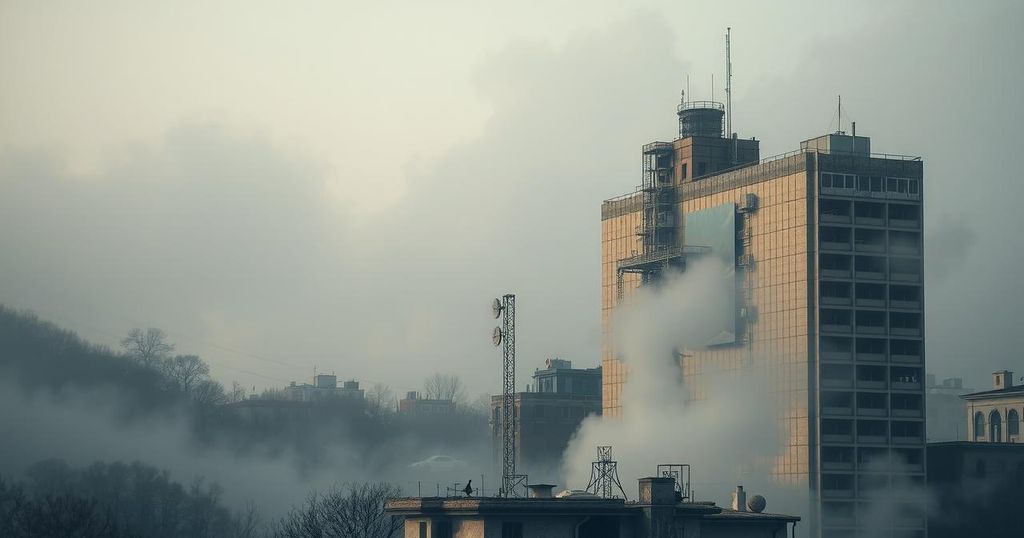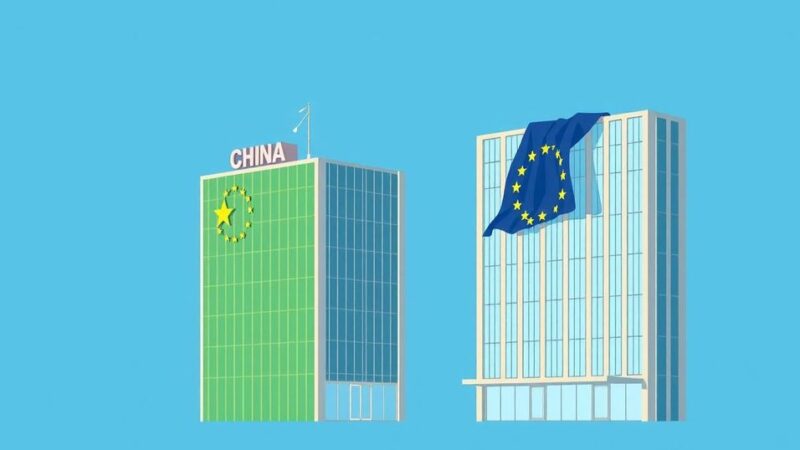The 2024 World Air Quality Report identifies Ghana, Nigeria, Chad, and Rwanda as some of the most polluted countries globally, with Chad topping the list. PM2.5 levels pose serious health risks, contributing to significant mortality rates. Ghana’s pollution has notably worsened, necessitating urgent actions to address the public health emergency and its economic consequences.
The 2024 World Air Quality Report highlights extreme pollution levels in Africa, naming Ghana, Nigeria, Chad, and Rwanda among the most polluted countries. This report underscores a growing air quality crisis that poses serious health risks to millions of individuals across the continent.
Chad tops the pollution chart with a PM2.5 concentration of 91.8 µg/m³, significantly exceeding the WHO’s safe guideline of 5 µg/m³. Nigeria is ranked 11th (40.1 µg/m³), Rwanda at 9th (40.8 µg/m³), and Ghana is 14th with 35.8 µg/m³ of PM2.5 particles, extremely harmful to health as they penetrate the lungs and bloodstream, causing respiratory and cardiovascular diseases.
The University of Chicago’s data indicates that air pollution reduces lifespans by 2.7 years in highly polluted regions. In Ghana alone, around 28,000 lives are lost each year due to air pollution, with global fatalities reaching approximately 8.1 million annually, equating to 22,192 deaths daily. The dire situation sees a child dying every minute due to pollution-related issues.
Ghana’s pollution levels are alarming, now seven times above safe limits, with Accra ranked the 16th most polluted capital at 36.3 µg/m³. Kumasi has exceeded Accra as the most polluted city with a PM2.5 count of 39.5 µg/m³. Over the years, Ghana has moved from 27th place in 2022 (30.2 µg/m³) to 14th in 2024 (35.8 µg/m³).
Africa is facing a significant pollution challenge with only 24 out of 54 countries providing air quality data due to inadequate monitoring systems. The 2024 report identifies five of the top ten most polluted countries as African nations. Alarmingly, cities like Lagos were missing from the rankings, indicating critical data gaps in major urban areas.
The situation in Ghana is a public health emergency with an estimate of 28,000 annual deaths attributed to air pollution, which translates to one death every 19 minutes. Projections indicate that if pollution levels remain unchecked, monthly deaths could exceed 2,333 as air quality declines. The economic implications of this crisis are substantial, with costs potentially reaching $137.8 billion by 2040.
In global air quality rankings, Chad leads with 91.8 µg/m³, followed by Bangladesh (78.0 µg/m³) and Pakistan (73.7 µg/m³). In contrast, only seven countries, including Australia and New Zealand, met the WHO PM2.5 guidelines in 2024. Nieuwoudtville in South Africa is the only African city meeting these standards.
Key factors driving pollution in Africa include rapid urbanization, industrial emissions, population growth, and improper waste disposal. Kinshasa, for example, has seen a 40% rise in PM2.5 levels due to increased industrial activities. Non-governmental organizations now provide most air quality data in Africa, highlighting the need for better governmental monitoring efforts.
In response to the worsening pollution in Ghana, experts advocate for stricter environmental regulations, including:
1. Enhanced vehicle emission standards.
2. Investment in renewable energy.
3. Increased air quality monitoring stations.
4. Strict anti-burning regulations.
With Ghana now ranked among the top 15 most polluted countries, immediate action is crucial to prevent a worsening public health crisis.
The 2024 World Air Quality Report underscores a critical pollution crisis in Africa, particularly in Ghana, Nigeria, Chad, and Rwanda. The alarming levels of PM2.5 pollutants highlight an urgent public health threat, which, if left unaddressed, could lead to millions of premature deaths and significant economic costs. Immediate implementation of stricter environmental policies and increased air quality monitoring are essential to combat this escalating crisis.
Original Source: www.myjoyonline.com






